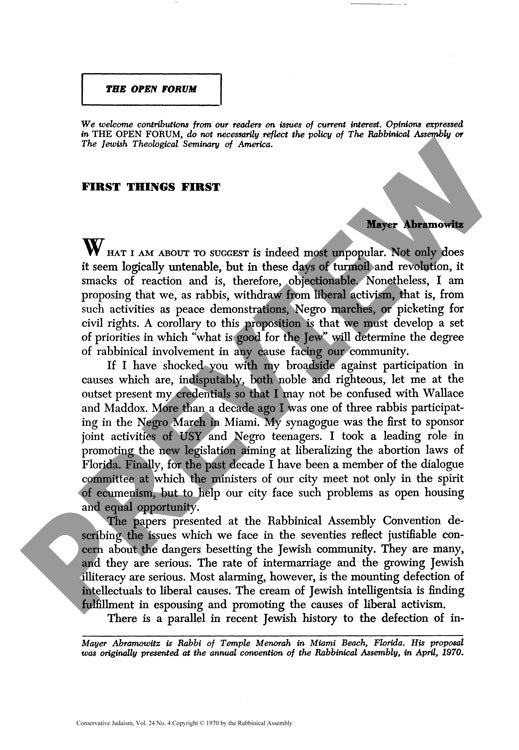First Things First
Couldn't load pickup availability
In the decades following World War II, American rabbis devoted unprecedented energy to liberal activism and social justice causes - from civil rights marches to peace demonstrations. Yet this well-intentioned engagement may have inadvertently undermined critical Jewish communal interests. Drawing on historical parallels from 19th-century Russian Jewish intellectual involvement in the Narodniki movement, Rabbi Mayer Abramowitz makes a controversial case for rabbinical disengagement from broad liberal activism in favor of prioritizing specifically Jewish needs. Through analysis of civil rights activism, population control advocacy, abortion law liberalization, and peace demonstrations, the research reveals how rabbinical involvement contributed to unintended negative outcomes: declining Jewish birth rates in the post-Holocaust era, deteriorating Jewish-Black relations, and damage to Israel's diplomatic position through peace activism that implicitly validated Soviet narratives. The examination combines historical case studies with contemporary examples to demonstrate the frequent tension between universal liberal causes and Jewish communal preservation. While acknowledging the pull of social justice work, Abramowitz advocates for a "Jew-centric" approach modeled on Isaiah's example - one that balances universal concerns with particular devotion to Jewish community survival and flourishing.

More Information
-
Physical Description
-
Publication Information
Published 1970
ISBN
-
Publication Credits
Mayer Abramowitz

